Motivate Kids to Do Hard Things
In 2006, sixteen-year-old twin boys started a blog. Three weeks after launch, this blog aimed as a ‘teenage rebellion against low expectations’ caught the attention of the New York Daily News.
Inspired by an intense summer reading program, Alex and Brett Harris’s movement to rebel and revolutionize their lives lead them to start The Rebelution. The Rebelution is now a major website with teenage readers and contributors from around the globe.

The summer it started, the twins read about the accomplishments and responsibilities of youth from previous eras. They covered widespread subjects, including science, sociology, globalization, journalism, history, philosophy, business, and more. And they were motivated to start doing hard things now.
“We’re not rebelling against institutions or even against people. Our uprising is against a cultural mindset that twists the purpose and potential of the teen years and threatens to cripple our generation.”
- Alex and Brett Harris
As an educator, you are on the front-line battle to help teens accept responsibility and develop a strong sense of purpose. Your high expectations can transform a lazy child into a productive, motivated teen.
The teen years are about preparing for and launching into adulthood. An effective teacher helps youth find the sweet spot in the springboard. The sweet spot smoothly launches them into responsible adulthood instead of bellyflopping into minimum requirements.
Kidults
Adolescents or the teen years are relatively new cultural terms. In the 1900s, child labor laws and requirements for school attendance meant those who were once producers and contributors to households and economies became singularly consumers.
Protecting and educating youth was and is a major step forward in producing long-term, higher quality life. However, without establishing a strong sense of purpose and clear goals, teens are left to flounder, to consume without giving back or moving forward.
Without direction or motivation, teens become kidults. A 2005 Time magazine article defines kidults as “full-grown men and women...who dress and talk and party as they did in their teens, hopping from job to job and date to date, having fun but seemingly going nowhere.”
Raising the Bar
What is your role as a teacher to motivate and raise the bar to prepare youth for adulthood? As a parent, I am grateful for the teachers who have stepped up and expected more.

In their book, Do Hard Things, Alex and Brett challenge youth to do five kinds of hard things. We can all benefit from challenges to improve ourselves. Tucking these challenges away can also help you appropriately challenge kids to prepare for a successful launch into real life.
Five Kinds of Hard
- Do Things Outside of Your Comfort Zone
Struggling is part of growing. Encourage a growth mindset by recognizing and praising students’ efforts to do things outside of their comfort zone. It may be giving a presentation, leading a group project, studying a subject, or simply asking for help on an assignment. Help students understand positive thinking triggers success.
2. Do Things Beyond What is Expected or Required
Great teachers are always going beyond what is required or even expected. Their love and passion for their students and the learning process brings personal satisfaction and joy.
Likewise, the most rememberable experiences youth have come from using their initiative. A neighbor asked my teenage son to trim and haul off tree branches. A couple of hours later, he took off on his bike to enjoy his friends. My neighbor came looking for him, saying he did a great job, but he ran off before she could pay him.
That night my son admitted he didn’t want to get paid; he just wanted to help someone in need. That experience (with several others) propelled him to become an occupational therapist because he wants to help people in need.
As a teacher, acknowledge and express gratitude or admiration for students who exceed expectations. At the same time, you can help direct students working below their potential.
After establishing clear goals and expectations, go ahead and point out when a student is not living up to their capability. Accepting lazy work keeps them on a kidult trajectory.
3. Do Things That Can’t Be Accomplished Alone
It is so easy to put our heads down when considering big issues. We say, “I’m just one person: What can I do?” However, if we band together with like-minded people, we can make societal, global, and individual changes.

Be inspirational. Get involved yourself. With a few keystrokes, you can find ways to work with others on issues that concern you.
Think about and involve students in projects bigger than one person. Help them see ways they can accomplish big things when they work together.
4. Do Things That Don’t Earn an Immediate Pay Reward
It is hard to keep going when you don’t see an immediate result. That is the biggest issue I have with healthy eating. If I don’t see a daily effect on the scale, it is hard to keep making good lifestyle choices. However, when I stick with it, I feel AWESOME regardless of what the scale says!
Long-term goals are achieved in small, consistent steps. Those steps might seem like drudgery with no perceivable gain. However, when you help students look back over a month, six months, or a year and compare where they were then and where they are now, they see marvelous growth in doing small things.
5. Do Things That Challenge the Cultural Norm
The cultural norm or expectation for too many teens is to view life as a party to consume, be entertained, and experiment with things that often carry difficult consequences. Teachers can unknowingly feed those expectations with jokes they tell or even sometimes the material they cover.
As a teacher, you can raise the bar by challenge kids to do hard things, go against the cultural norm, get off their phones, include others on the sidelines, and to forgo certain parties and behaviors at school dances.
A moment of ‘fun’ is not worth a lifetime of regret. Please stand with those kids who choose to go against the cultural norm. Your support carries a powerful message that affects more than the one you are standing with.
Teacher Power
Thanks for empowering and motivating the rising generation. It takes a village to raise a child, and you are an indispensable part of that village. Our world is brighter because of you.

Teacher Power Energy Drinks are here to power your day. Our powdered drinks are budget-friendly and sugar-free, and the best part about Teacher Power Energy Drinks is no crash, just level energy.
Find your motivation and power up with Teacher Power Energy Drinks (products can be purchased on our website and amazon.com).
By: Jae O. Haroldsen
The content of Teacher Power’s website is for information only, not advice or guarantee of outcome. Information is gathered and shared from reputable sources; however, Teacher Power is not responsible for errors or omissions in reporting or explanation. No individuals, including those taking Teacher Power products, should use the information, resources or tools contained within to self-diagnosis or self-treat any health-related condition. Teacher Power gives no assurance or warranty regarding the accuracy, timeliness or applicability of the content.
Sources:
Wilcox, Luke. “Top 5 Strategies for Motivating Students.” National Board for Professional Teaching Standards. 2018. https://www.nbpts.org/blog/top-5-strategies-for-motivating-students/
“Motivating Students.” Teach.com. 2020. https://teach.com/what/teachers-change-lives/motivating-students/

